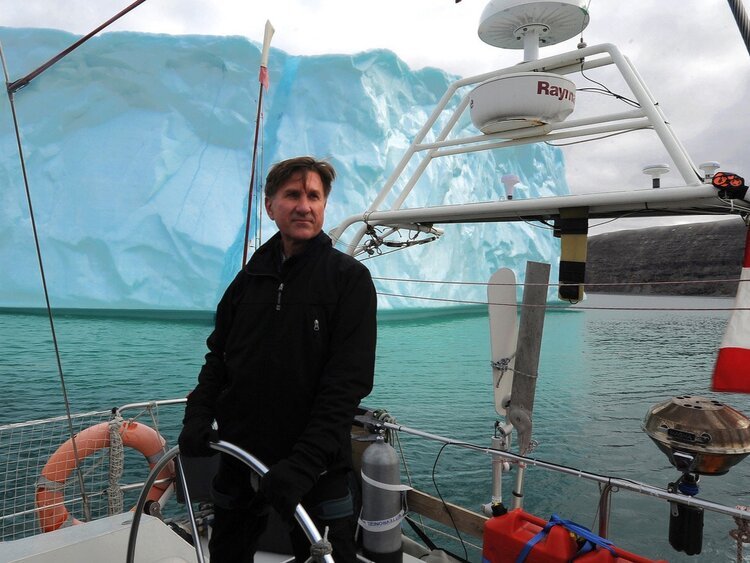Firestorm: How Wildfire Will Shape Our Future
Wildfires are burning bigger, hotter, more often and in increasingly unpredictable ways. The area of forest burned in Canada has doubled since the 1970s. Big head-spinning fires like the ones we saw in the Northwest Territories in 2014, Alberta in 2016, and British Columbia in 2017 and 2018 are on the rise. There are many reasons why we’re going to see more of this and why 2020 has become another year of extreme fire. Edward Struzik explains why in our Fall Reads pick, Firestorm: How Wildfire Will Shape Our Future.
Author Edward Struzik joined us for a special presentation and Q&A about Living with Fire in the Age of Climate Change.
About the Book
For two months in the spring of 2016, the world watched as wildfire ravaged the Canadian town of Fort McMurray. Firefighters named the fire “the Beast.” It acted like a mythical animal, alive with destructive energy, and they hoped never to see anything like it again. Yet it’s not a stretch to imagine we will all soon live in a world in which fires like the Beast are commonplace. A glance at international headlines shows a remarkable increase in higher temperatures, stronger winds, and drier lands– a trifecta for igniting wildfires like we’ve rarely seen before.
This change is particularly noticeable in the northern forests of the United States and Canada. These forests require fire to maintain healthy ecosystems, but as the human population grows, and as changes in climate, animal and insect species, and disease cause further destabilization, wildfires have turned into a potentially uncontrollable threat to human lives and livelihoods.
Our understanding of the role fire plays in healthy forests has come a long way in the past century. Despite this, we are not prepared to deal with an escalation of fire during periods of intense drought and shorter winters, earlier springs, potentially more lightning strikes and hotter summers. There is too much fuel on the ground, too many people and assets to protect, and no plan in place to deal with these challenges.
In Firestorm, journalist Edward Struzik visits scorched earth from Alaska to Maine, and introduces the scientists, firefighters, and resource managers making the case for a radically different approach to managing wildfire in the 21st century. Wildfires can no longer be treated as avoidable events because the risk and dangers are becoming too great and costly. Struzik weaves a heart-pumping narrative of science, economics, politics, and human determination and points to the ways that we, and the wilder inhabitants of the forests around our cities and towns, might yet flourish in an age of growing megafires.
About the Author
Edward Struzik is a writer, educator, public speaker and a fellow at the Institute for Energy and Environmental Policy in the School of Policy Studies at Queen’s University in Kingston, Ontario. For the past decade, he has been a regular contributing writer for Yale Environment 360, an international on-line journal offering opinion, analysis, reporting and debate on global environmental issues. Yale 360 is published at the Yale School of Forestry & Environmental Studies.
His many other articles and essays appear in journals, magazines and newspapers such as Scientific American, Natural History, National Geographic, Hakai Magazine, Ensia, Policy Options, Foreign Policy Review, the Los Angeles Times, The Conversation, Canadian Geographic, the Globe and Mail, and National Post.
Mr. Struzik has earned more than 30 international and national awards for his writing and his books. Included among them are the US-based Grantham Prize, which honours and encourages excellence in writing on the environment; RCIScience’s Fleming Medal for Science Communication, which honours individuals who have made an outstanding contribution to the understanding of science in Canada, the Atkinson Fellowship in Public Policy, which provides year-long funding for the exploration of a public policy issue of national and international interest, and the Michener Award for public policy. The Michener is awarded each year by the Governor General of Canada and the Michener Foundation.
Mr. Struzik has written six books, and contributed to several others. His latest book, Firestorm: How Wildfire Will Shape Our Future, won the Science in Society Book Award in 2018.
Praise for Firestorm
“Frightening...Firestorm comes alive when Struzik discusses the work of offbeat scientists.” — New York Times Book Review
"Comprehensive and compelling." — Booklist
“A powerful message." — Kirkus
>"Should be required reading." — Library Journal
Find a Copy
We invite you to acquire a copy of Firestorm from your local library, or consider supporting your local independent bookstore.





Edward Struzik, author of RCIScience Fall Reads Firestorm: How Wildfire Will Shape Our Future, outlines what the history of fire can tell us about the present wildfire situation and our ability to deal with future fire events.